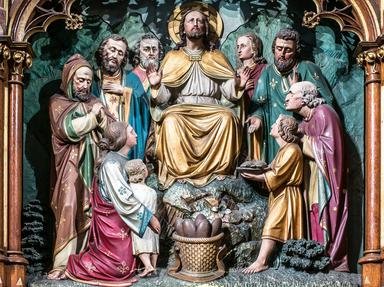Quiz Answer Key and Fun Facts
1. God had a message for the king of Judah and told Isaiah to first inscribe it on tablets then give it as a name to his son -- Maher-Shalal-Hash-Baz. Who was king at that time?
2. There were indeed many unwise and destructive kings in the Bible. The story of a certain plunderous ruler who formed an alliance with his neighbours in order to crush an ongoing revolt can be found in Genesis 14. What was the name of Chedolaomer's kingdom?
3. After interpreting Pharoah's dream and proposing a solution to forthcoming problems, Joseph was promoted and given a wife. Not only that, but his interpreting skill also earned him a new name in Egypt. What was the name?
4. It is not uncommon for rulers to take opposition or rivals into custody. 1 Chronicles 5:6 tells us about a certain king of Assyria who was taking people that revolted against him captive. What was the king's name?
5. A portion of Judges 3 tells us how the children of Israel were given into the hands of a wicked king for turning away from God and worshipping the gods of their neighbours. Who did God send to deliver them from Cushan-Rishathaim's (the evil king's) hand?
6. Nebuchadnezzar was fond of boasting, it even got to a point when he regarded himself a god. For this, God sent Daniel prophesy that Nebuchadnezzar would run mad for seven years during which he would behave like an animal and eat grass. When did this come to pass?
7. In the book of Isaiah, we learn about a Babylonian royal, Merodach-Baladan. What did he do, according to Isaiah 39?
8. Jonathan, David's best friend, had a son who was lame in his feet. His name was Ishbosheth. True or false?
9. Genesis 10:26 tells us about Joktan. He was the father of 13 people who, by local tradition, are considered important in Arab history. Of the following, which is a son of his?
10. Numbers 1:12 holds one of the longest names in the Bible. Ahiezer was selected as leader and representative of the tribe of Dan to stand with Moses and Aaron. Who was Ahiezer's father?
Source: Author
Tarkowski
This quiz was reviewed by FunTrivia editor
looney_tunes before going online.
Any errors found in FunTrivia content are routinely corrected through our feedback system.
